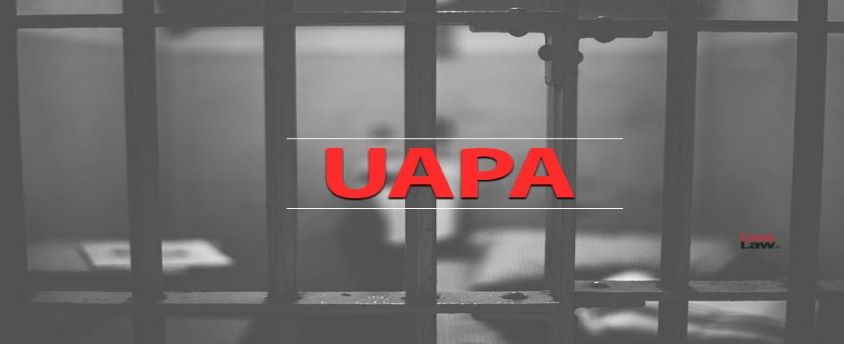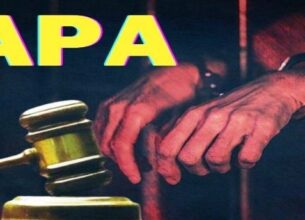UAPA Tribunal Upholds Centre’s Decision to Ban PFI
03, Apr 2023

Prelims level : Governance - Policies
Mains level : GS-III Security challenges and their management in border areas; linkages of organized crime with terrorism.
Why in News?
- Recently, five months after its constitution, the Unlawful Activities (Prevention) Tribunal upheld the Centre’s decision to ban Popular fronts of India and its affiliates.
What is the Background of the Issue?
- In September 2022, the Ministry of Home Affairs (MHA) in a gazette notification declared the PFI an “unlawful association” along with “its associates or affiliates or fronts.
- The notification issued by the MHA imposed a ban on the PFI and its associate organizations, including the Rehab India Foundation (RIF) and Campus Front of India, for five years under the Unlawful Activities (Prevention) Act (UAPA), 1967.
About UAPA:
- UAPA passed in 1967 aims at effective prevention of unlawful activities associations in India.
- Unlawful activity refers to any action taken by an individual or association intended to disrupt the territorial integrity and sovereignty of India.
- The Act assigns absolute power to the central government, by way of which if the Centre deems an activity as unlawful then it may, by way of an Official Gazette, declare it so.
- It has death penalty and life imprisonment as highest punishments.
- Under UAPA, both Indian and foreign nationals can be charged. It will be applicable to the offenders in the same manner, even if crime is committed on a foreign land, outside India.
- Under the UAPA, the investigating agency can file a charge sheet in maximum 180 days after the arrests and the duration can be extended further after intimating the court.
- The 2004 amendment, added “terrorist act” to the list of offences to ban organisations for terrorist activities, under which 34 outfits were banned.
- Till 2004, “unlawful” activities referred to actions related to secession and cession of territory.
- In August 2019, Parliament cleared the Unlawful Activities (Prevention) Amendment Bill, 2019 to designate individuals as terrorists if the individual commits or participates in acts of terrorism, prepares for terrorism, promotes terrorism or is otherwise involved in terrorism.
- The Act empowers the Director General of National Investigation Agency (NIA) to grant approval of seizure or attachment of property when the case is investigated by the said agency.
- The Act also empowers the officers of the NIA, of the rank of Inspector or above, to investigate cases of terrorism in addition to those conducted by the DSP or ACP or above rank officer in the state.
What is the UAPA Tribunal?
- The UAPA provides for a tribunal to be constituted by the government for its bans to have long-term legal sanctity.
- It is headed by a retired or sitting judge of a High Court.
- On receiving notification from the Centre, the Tribunal calls upon the concerned association to show cause, within 30 days from the date of the service of such Centre’s notice, that why it should not be declared unlawful.
- After hearing arguments from both sides, the Tribunal can hold an inquiry to decide within 6 months whether there is sufficient evidence to declare an association unlawful association.
- Under the UAPA, the Centre’s notification cannot have an effect until the tribunal confirms the declaration in its order.
Relevant Supreme Court judgements:
- Kedarnath Singh vs State of Bihar: Section 124A has been challenged in various courts in specific cases.
- The validity of the provision itself was upheld by a Constitution Bench in 1962, in Kedarnath Singh vs State of Bihar.
- That judgment went into the issue of whether the law on sedition is consistent with the fundamental right under Article 19 (1) (a) which guarantees each citizen’s freedom of speech and expression.
- The Supreme Court laid down that every citizen has a right to say or write about the government, by way of criticism or comment, as long as it does not “incite people to violence” against the government established by law or with the intention of creating public disorder.
- The Balwant Singh vs State of Punjab (1995) case: In this case, the Supreme Court had clarified that merely shouting slogans, in this case Khalistan Zindabad, does not amount to sedition.
Evidently, the sedition law is being both misunderstood and misused to muzzle dissent.
Criticisms of UAPA:
- The law is often misused and abused. It could be used against political opponents and civil society activists who speak against the government and brand them as “terrorists.”
- The 2019 amendment gives unfettered powers to investigating agencies.
- The law is against the federal structure; given that ‘Police’ is a state subject under 7th schedule of Indian Constitution.
What needs to be done?
- Anti-terror laws should not be used as tool to silence the critics of government.
- A committee may be set up to examine and supervise the process of designatingindividuals as terrorists and investigation of cases with objectivity and fairness.
- Arbitrariness under the law should be checked through judicial review.







